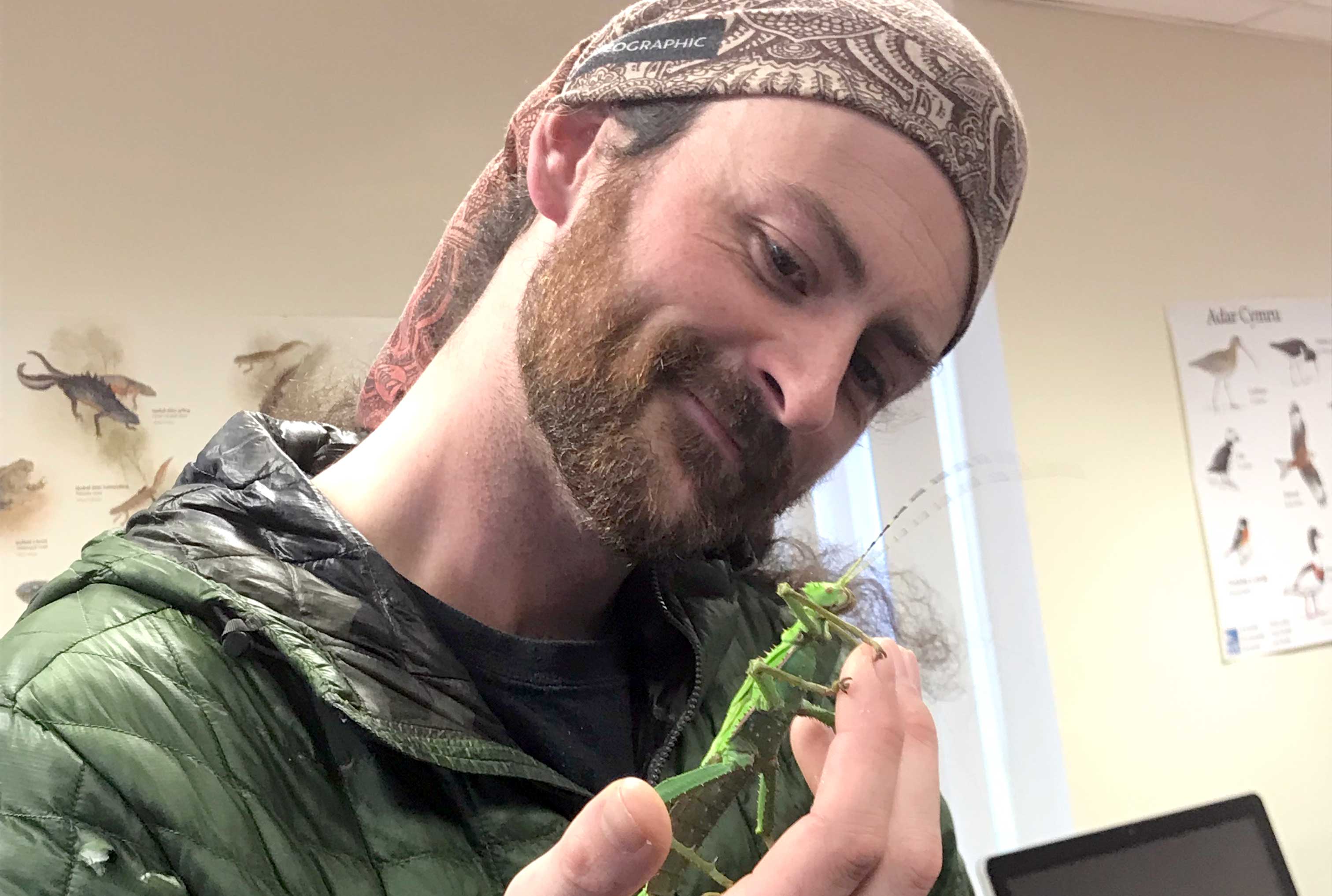Wrexham Glyndwr Student Helps Unlock Museum Collection’s Hidden Treasures
Hidden gems in the collection of a Jersey-based entomologist are being uncovered in Liverpool’s World Museum thanks to the commitment of a university student.
Andrew Roberts, originally from Dudleston Heath in Shropshire, is working at the museum logging the beetle collection of Walter le Quesne, an amateur entomologist on Jersey whose work is renowned among insect lovers – but whose collection has never been fully catalogued.
Andrew – a student at Wrexham Glyndwr University’s Northop Campus in Flintshire – said: “There are somewhere between 1,000 and 2,000 specimens I’m working through – they are just the Coleoptera order – that’s beetles – as Walter le Quesne’s main interest was Hempitera, the true bugs so while he collected other insects, other parts of the collection are less well-known.
“The museum received the collection back in the early 90s but hadn’t had a chance to look at it – it has sat in the archives for years. I’ve started identifying the species I find and adding them to the museum’s lists.”
As the thousands of specimens in the collection are identified thanks to Andrew’s work, they can be added to the museum’s full collection – and the data they hold can be made available to researchers across the globe.
The project began as a labour of love for Andrew, who also works as a chimney sweep alongside studying for his Wildlife and Plant Biology course.
He said: “In my first year, we went to the museum as one of our site visits – that was the first time I saw the collection, and the first time I got into it! I met Tony Hunter, who is the assistant curator there, and got to know him.
“Then, later, I was doing a presentation and one of the things I wanted to do on it was explain the differences between various kinds of ground beetles – so I visited the museum again to look at their ground beetle collections. I looked at around fifty specimens of the beetles to ‘get my eye in’ when talking about the differences and that meant I was at the museum a lot.
“Then, when I heard the museum was looking for volunteers, I just kept on going – I’ve racked up something like 100 hours as a volunteer.
“Now, I’m working there one or two times a week alongside my studies, going through Walter’s collection – I travel up from Shropshire each time!”
Programme Leader in Animal Studies, Angela Winstanley, said: “By lending his skills to help analyse this collection, Andrew is not only getting a chance to extend his identification skills – he’s also adding to the records of one of Liverpool’s leading museums.
“Practical, hands-on experience like this is at the heart of what we do here at Glyndwr – and it helps our students add to their CVs and develop a career where they can put their studies to use.”
Find out more about the Animal Studies foundation degree at Glyndwr – which offers students the chance to build up to a full BSc in Animal Studies – here: https://www.glyndwr.ac.uk/en/Undergraduatecourses/Animalstudies/
Notes
Founded in 2008, Wrexham Glyndwr University is a young, bold and vibrant university based in north-east Wales. The university has two campuses in Wrexham, Plas Coch and Regent Street plus campuses in Northop and St Asaph. In 2017 the university was awarded the silver award in the Teaching Excellence Framework for the quality of teaching.
The university is driving academic excellence through a wide range of innovative and industry-relevant courses, such as Applied Science, Computing, Engineering, Creative Arts, Criminology and Psychology. Wrexham Glyndwr is now a Top 100 University, rising 24 places in the Guardian league tables – one of the top 10 risers in the UK. The Campus 2025 strategy encompasses plans for new student accommodation, car parking and upgraded facilities in the next eight years.
